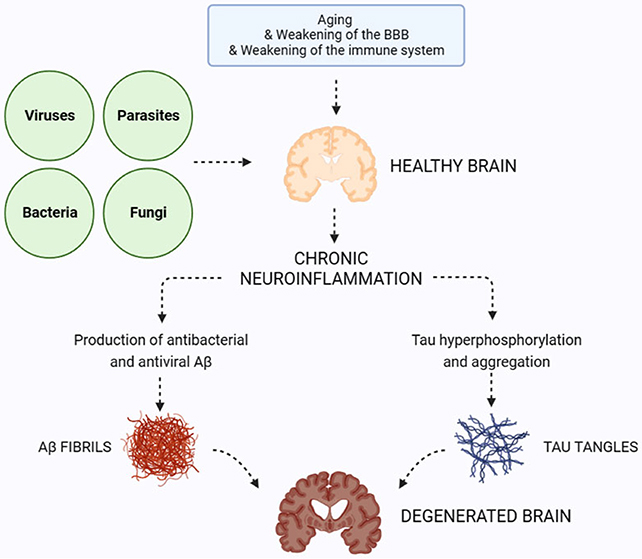ARTICLE AD
A new review advances the hypothesis that nose picking could play a role in increasing the risk of developing Alzheimer's disease – and the link is one that experts are now seriously considering.
It's one of those ideas that sounds daft initially but makes sense if you think about it. Simply put, bacteria and viruses on your fingers are getting an easy ride into your system if you stick them up your nose.
Bear in mind that the olfactory system in the roof of the nasal cavity has a direct path to brain areas in which Alzheimer's wreaks havoc, such as the hippocampus. That could be crucial in weighing up this risk, says the team behind the review, from Western Sydney University in Australia.
"Many possible factors might contribute to the development of Alzheimer's disease, including amyloid peptide and tau deposition, but more recent evidence suggests that neuroinflammation may also play an – at least partial – role in its pathogenesis," write the researchers in their published paper.
"In recent years, emerging research has explored the possible involvement of external, invading pathogens in starting or accelerating the neuroinflammatory processes in Alzheimer's disease."
As the review goes on to investigate, nose-picking – or rhinotillexomania, to give it its technical name – could indirectly lead to this brain inflammation, and there are a couple of ways in which that might be happening.
First, picking our noses means that anything on our fingertips (like pathogens) gets pushed towards the brain. Second, pulling stuff out of our nose affects its microbiome balance – potentially making it a less effective barrier to the body.
As the researchers note, nose-picking has previously been linked to an increased risk of infection: one study published last year showed a link between the habit and the chance of catching COVID-19, for example.
 Invading pathogens could be causing the damage seen in Alzheimer's. (Zhou et al., Biomolecules, 2023)
Invading pathogens could be causing the damage seen in Alzheimer's. (Zhou et al., Biomolecules, 2023)In 2022, another study linked nose-picking to Alzheimer's, though in that case, the research was focused on mice. It showed that damage to the nasal epithelium (the tissue lining the nasal cavity) could increase infection risk, leading to a response in the brain similar to that seen in Alzheimer's patients.
Other telling indicators pointed out by the review include that some viruses have regularly been found in the brains of people with Alzheimer's, and that signs of Alzheimer's are often spotted first in the olfactory bulb, the part of the brain that detects smells.
We're still a long way from a definitive conclusion that picking your nose increases Alzheimer's risk, but the signs are there – and as we understand more about this complex disease, we can also work on more effective treatments.
"Understanding the potential role of olfactory pathogen entry in AD-associated neuroinflammation opens up new avenues for prevention," write the researchers. "Among all the entry routes, the improvement of hand hygiene might be an easy prevention step, as learned from the COVID-19 epidemic."
The research has been published in Biomolecules.

 1 year ago
95
1 year ago
95 

